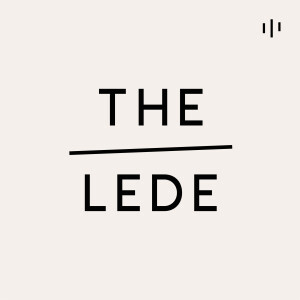
Thursday Jan 26, 2023
Behind the Hamline University Incident — with Erika Lopez Prater, Christiane Gruber and Rasha Elass
“I said, ‘I'm showing these images to you for a reason,’” recalls Erika López Prater, a former adjunct professor at Hamline University in St. Paul, Minnesota. “I wanted to demonstrate the rich variety of art-making within Islamic traditions.”
The images in question were medieval paintings of the Prophet Muhammad. At the time it was produced, the art was intended to be celebratory. However, due to shifting religious practices, many Muslims have come to consider such depictions of the prophet to be forbidden or offensive. López Prater says that she tried to be mindful of these sensitivities and warned students before displaying them. But after a complaint was lodged with the administration, university officials turned on her and her contract was subsequently canceled.
After Christiane Gruber, a professor of Islamic art at the University of Michigan, wrote an essay in New Lines condemning the university’s actions, López Prater’s story became a national controversy. In this podcast with New Lines magazine’s Rasha Elass, they discuss the rich variety of artistic traditions within Islam and unpack the complicated web of factors behind the current controversy.
“These anxieties around images of the Prophet Muhammad started to really emerge over the course of the 20th century,” Gruber says. Attitudes among Muslims have varied widely across time and place, and aniconic beliefs were far from universal historically. She traces modern concerns back to very recent origins — to controversies over disrespectful cartoons published in Charlie Hebdo in France and the Jyllands Post in Denmark. Such depictions should not be conflated with the depictions found in Islamic art, she argues: “The intent behind those cartoons was to shock. And of course it overlapped with xenophobia.”
But another big part of the problem, López Prater says, comes from the increased marketization of higher education in recent years. “Colleges and universities have adopted a customer-service model,” she explains. “They’ve slashed tenure track positions in favor of cheap adjunct labor. Meanwhile, that is accompanied by administrative bloat.” That trend, she suggests, has encouraged institutions to prioritize financial and reputational concerns over academic enquiry and enabled officials to treat academic staff as disposable.
“There is this hugely tragic irony that the administration was trying to sweep this issue under the rug through the quick dismissal of an adjunct professor,” she adds. “And instead have been having to reckon with a long history of racist and Islamophobic events on their college campus and within the Twin Cities and within our country.”
No comments yet. Be the first to say something!